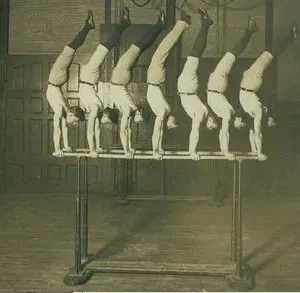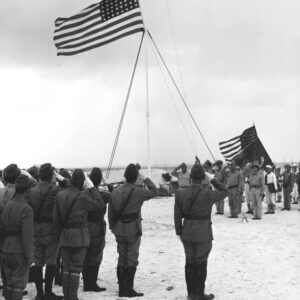
With it being late in the show, and the audience feeling they had sat through enough to at least get their money’s worth, disapproval of the evening’s performances again reared its head. Beans, potatoes, turnips, cabbage, and stale pieces of meat rained down upon the sisters on stage in mid tableau. As Effie quickly stood up to exit the stage for cover, she was struck in the face by a piece of liver thrown by a teenage boy, who thought it would be fun to join in with the rowdyism. The sisters’ manager, J.E. Wells, watching from backstage, saw the boy who threw the liver. Wells approached the footlights and jumped off stage, making his way down the center aisle toward the boy. Effie stepped off the stage to follow her manager toward the young assailant. The audience became excited, shouts and cheers filling the theater now that they were witnessing something interesting occurring for the first time during the show. When Wells approached the boy, he put his hands on him, attempting to escort him out of the theater, but quickly found himself surrounded by the boy’s older brother and young male acquaintances. One of these acquaintances was a young man named Charles McCormick, who picked up a nearby wooden chair, and from behind, brought it down over Wells’s head, splinters of wood flying from the chair. Wells dropped to the ground unconscious. The audience went wild, a combination of cheers, shrieks, and screams filling the entire theater. Confusion and pandemonium erupted when Effie began physically attacking a young man elsewhere, named William Beebe, who had been vocal throughout the show in protest of the sisters’ performances. She reigned lashes down on Beebe with a short whip, the same type of whip she and her sisters used to assault Center Point Tribune’s editor, Charlie Floyd, back in June.
William Beebe uncovered himself from his defensive posture long enough to shove Effie, knocking her to the ground. He then grabbed her arm and began dragging her on the floor down the center aisle toward the stage. Chaos erupted throughout the theater, every emotion imaginable being made vocal by all in attendance. Police stationed on each floor took no action, simply remaining witnesses instead of protectors. Beebe had just about reached the stage with Effie still being dragged behind him.
[fusion_separator style_type=”single|dashed” hide_on_mobile=”small-visibility,medium-visibility,large-visibility” sticky_display=”normal,sticky” class=”” id=”” flex_grow=”0″ top_margin=”” bottom_margin=”” width=”” alignment=”center” border_size=”” sep_color=”” icon=”” icon_size=”” icon_color=”” icon_circle=”” icon_circle_color=””][/fusion_separator]
Five poverty-stricken women from Iowa wished to visit the 1893 World’s Fair in Chicago. They first needed to earn enough money for train fare and hotel expenses. To earn the money, they quickly wrote a variety act to perform on stage at a local opera house in front of a paying audience. Deciding afterward to take to the stage as a career, they could not have imagined the national fame their decision would bring them over the next four decades – fame they would earn for the wrong reasons.
The Cherry sisters earned a reputation of being so bad they were good – so much so that they were propelled to national stardom, performing in some of the largest cities throughout the United States, in some of the best-known theaters, including appearing on Broadway. Fame didn’t come without its difficulties though, and the sisters found themselves the targets of verbal and physical attacks both on and off the stage, and the recipients of countless negative theatrical reviews, many going far beyond what was necessary to print – not to mention their performances were so bad they incited violent riots. All the while the sisters believed they were the best talent on the nation’s stage, a belief no one else shared. They were constantly at odds with the press and audiences, and took to defending themselves in newspapers as well as verbally and physically in public against those who showed disapproval of their acts. In addition, the sisters were no strangers to filing lawsuits and being sued themselves, both related and unrelated to their line of work.
Follow the Cherry sisters’ thrilling journey, from their humble beginnings to their rise to fame and beyond, and discover why they were referred to as “The Rottenest Things on Earth”.
[fusion_products_slider picture_size=”fixed” cat_slug=”books-from-the-victorian-historian” number_posts=”7″ offset=”0″ orderby=”date” order=”DESC” out_of_stock=”exclude” carousel_layout=”title_below_image” autoplay=”no” columns=”5″ column_spacing=”13″ scroll_items=”” show_nav=”yes” mouse_scroll=”no” show_cats=”yes” show_price=”yes” show_sale=”no” show_buttons=”yes” hide_on_mobile=”small-visibility,medium-visibility,large-visibility” class=”” id=””][/fusion_products_slider]









Leave a Reply